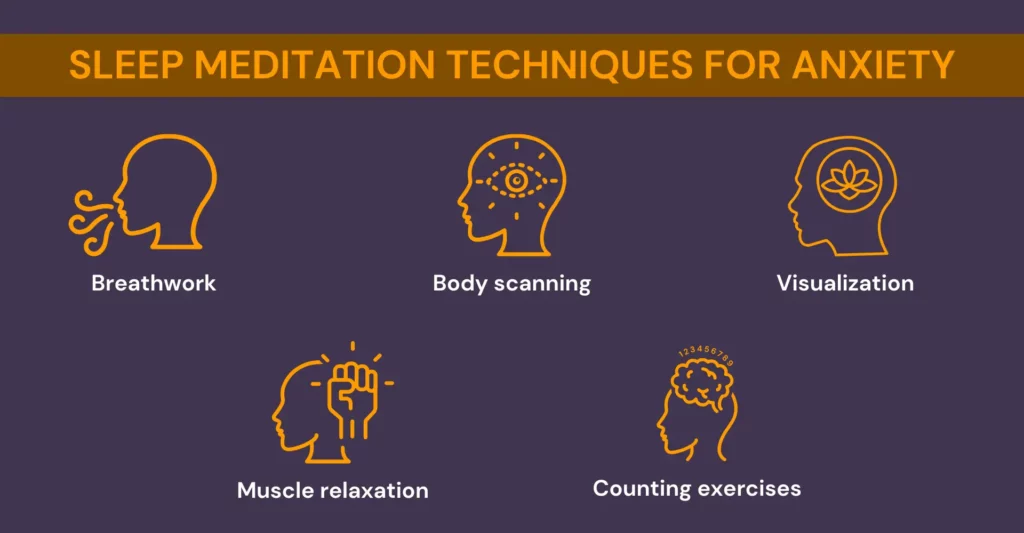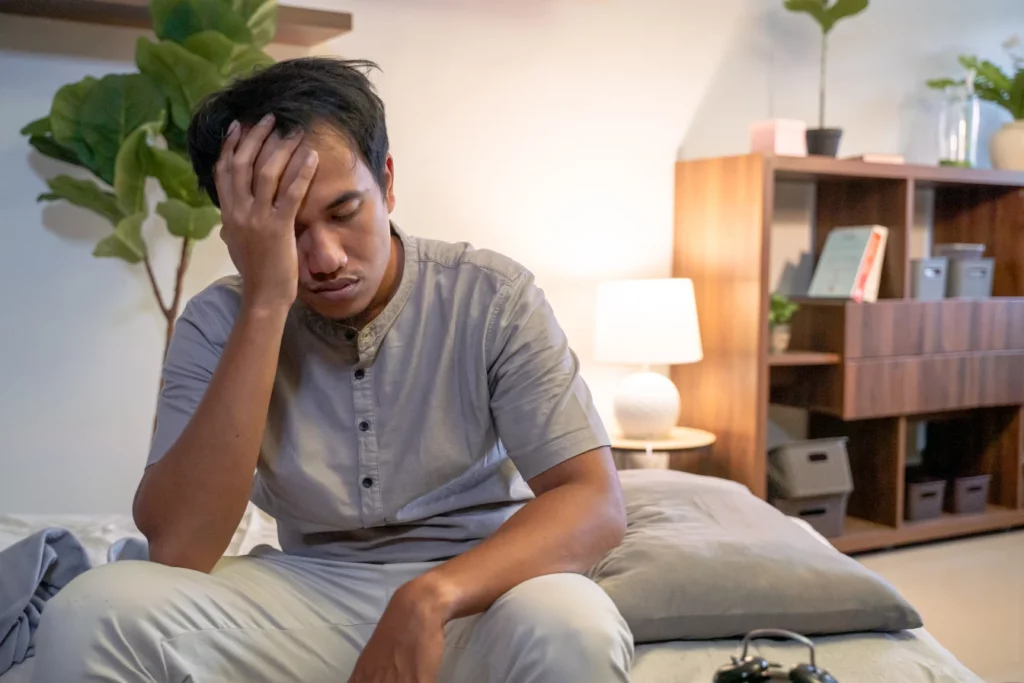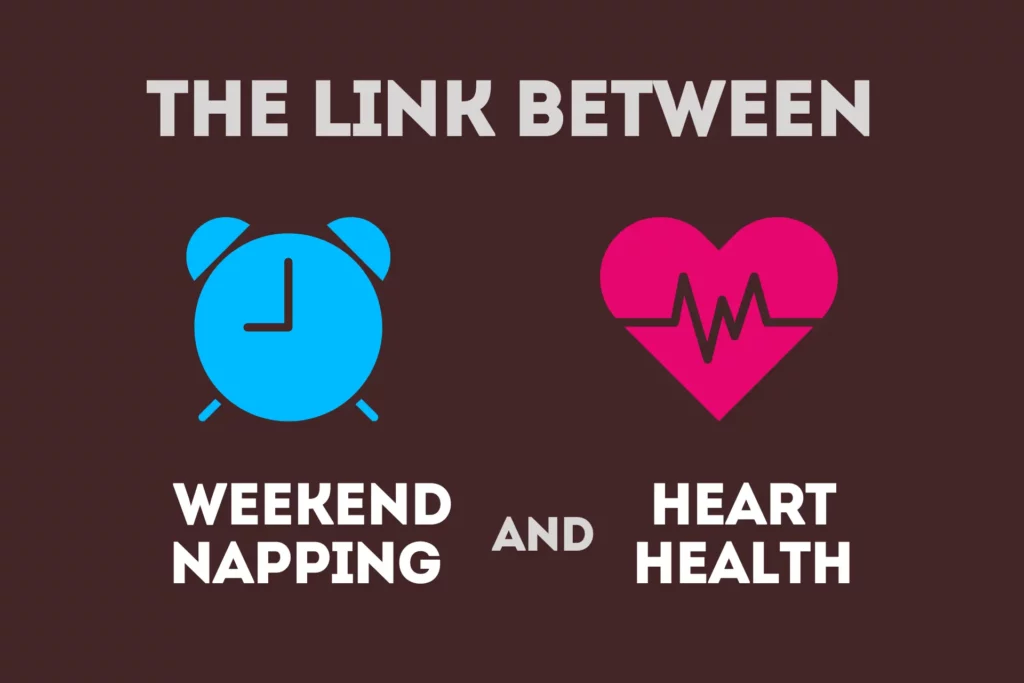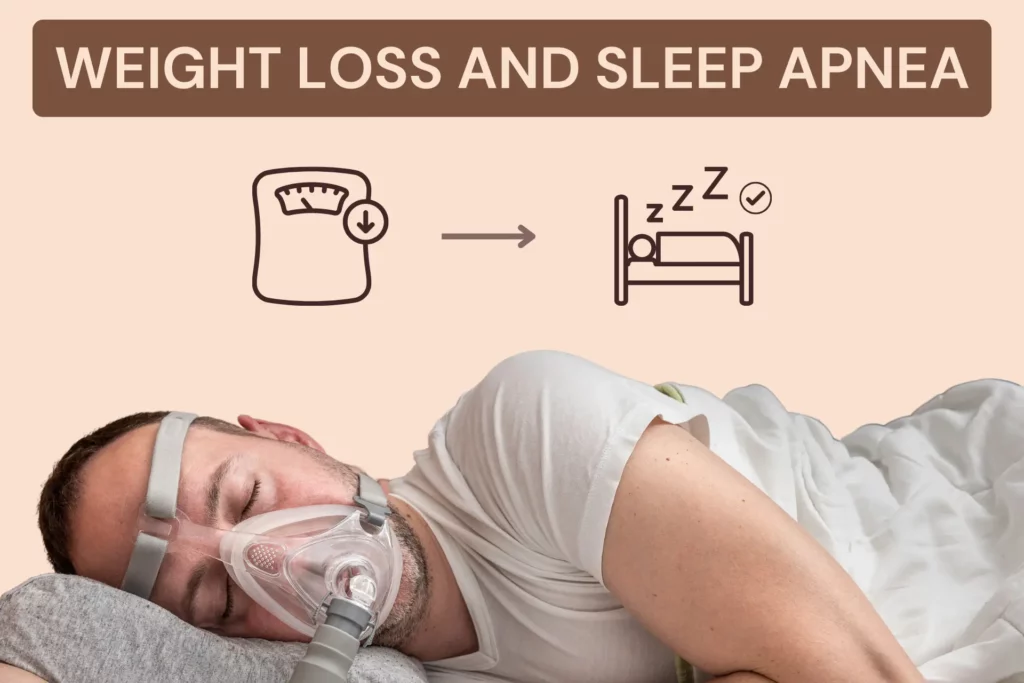Ever felt that sinking feeling, a tightness in your chest, or an overwhelming worry about the future? You’re not alone. Millions around the world grapple with anxiety every day, seeking some way to break free from its grip. From medications to mindfulness, various therapies offer some level of relief. What about sleep meditation? This emerging technique promises to be a game-changer in alleviating anxiety. Is it any good? What does science say? Read on to find out.
What Is Sleep Meditation?
Meditation is a holistic relaxation technique that helps shed off the heaviness of stress, poor moods, and exhaustion.
It soothes the body, offering a few moments of peace to the mind and soul.
You can meditate at any time of the day.
If you choose to meditate before you go to bed, you’re practicing sleep meditation.
People opt for sleep meditation to combat sleep disturbances like insomnia or apnea.
Sleep Meditation For Anxiety
Falling asleep as soon as you get into bed isn’t easy for everyone.
Insomnia, stress, and aches can keep you awake for long periods.
Sleep meditation is a simple technique that could help combat all of these.
Traditionally, meditation is the act of reconnecting with one’s thoughts and feelings.
Today, it’s evolved to simply calming one’s mind through various techniques.
Sleep meditation is gaining popularity over other forms of anxiety treatment for the following reasons:
- It’s free of cost.
- It doesn’t have side effects like medications.
- It doesn’t take much time; you could do it at home.
- It could have health benefits beyond improving sleep quality.
How To Do Sleep Meditation For Anxiety
Sleep meditation can take several different forms, like:
- Counting breathing exercises: Breathe in and out deeply. Focus on your breathing and count with each breath to a limit, say, 100.
- Visualization: Allow your brain to paint a calming picture, such as a lush valley, lapping waves at a beach, or a calming color that eases stress.
- Breathwork: Breathe in for 4 seconds, hold for 7 seconds, and exhale for 8. This technique helps empty your lungs and could have health benefits beyond relaxation.
- Muscle relaxation: Tense up and release one muscle group at a time from head to toe. This method can help with aches and pains and reduce stress.
- Body scanning: Scan your body for any pain or discomfort you wouldn’t usually notice. This practice can help you connect with your body and take better care of yourself.

Does Sleep Meditation For Anxiety Work? What Studies Say
Anxiety makes you hyper-aware of your negative thoughts and physical aches.
Lasting feelings of anxiousness can make it hard to fall asleep, leading to problems like insomnia.
Sleep meditation for anxiety helps by alleviating these mental and physical symptoms.
A review examined sleep meditation studies and concluded that it had a moderately positive effect on sleep quality.
Another review showed that sleep meditation improved sleep quality to an extent.
Further research into sleep meditation can help cement its place as an effective, recommended treatment for anxiety.
Other Treatments For Anxiety
- Psychotherapy: A mental health professional counsels you, helping you identify, tackle, and eliminate negative patterns of thought.
- Medication: Anti-depressants, beta-blockers, and anti-anxiety medications can help with different symptoms of anxiety.
- Lifestyle changes: Quit smoking, eat healthier, limit your caffeine intake, and begin a strict exercise regimen to help combat anxiety.
- Aromatherapy: The aroma of natural oils from lavender and grapefruit can help you relax your mind and sleep better.
Frequently Asked Questions
How Long Does It Take For Meditation To Get Rid Of Anxiety?
Sleep meditation can show real improvements beyond a good night’s sleep if done consistently.
It could take anywhere from a few weeks to a few months.
When Should You Not Meditate?
It’s best to avoid meditation during a period of poor mental health.
Being alone with the full force of your negative thoughts can do more harm than good.
What Is The 5-5-5 Rule Of Meditation?
A good start to the day involves 5 minutes of meditating, 5 minutes of stretching, and 5 minutes of mentally preparing for the day.
Summary: Sleep Meditation For Anxiety
- Anxiety affects millions worldwide, making it harder to fall asleep.
- Stress, insomnia, and chronic pain are common problems that impair sleep quality.
- Sleep meditation, or meditation before bed, can help tackle these issues.
- It’s free, easy, quick, and can be done at home.
- It can take the form of counting exercises, body scanning, visualization, breathwork, and progressive muscle relaxation.
- A few studies have shown a moderately positive correlation between sleep meditation and better sleep quality.
Others Are Also Reading

Can Lack Of Sleep Cause Nausea? Know How To Prevent It

Can Weekend Naps Improve Your Heart Health?

Could Weight Loss Be The Most Effective Treatment For Sleep Apnea?
References
https://www.healthline.com/health/meditation-for-sleep
https://health.clevelandclinic.org/sleep-meditation
https://www.webmd.com/balance/what-is-breathwork
https://www.webmd.com/sleep-disorders/muscle-relaxation-for-stress-insomnia
https://www.healthline.com/health/body-scan-meditation
https://nyaspubs.onlinelibrary.wiley.com/doi/abs/10.1111/nyas.13996
https://www.sciencedirect.com/science/article/abs/pii/S0022399916303579
https://www.mayoclinic.org/diseases-conditions/anxiety/diagnosis-treatment/drc-20350967
https://www.healthline.com/health/natural-ways-to-reduce-anxiety




